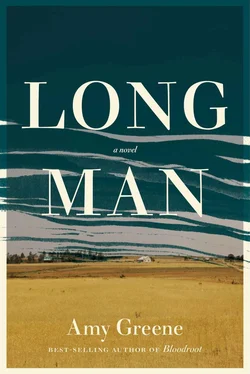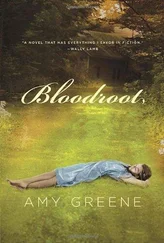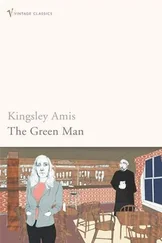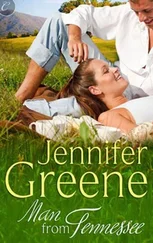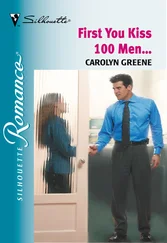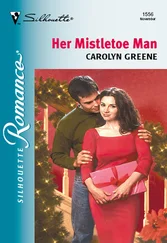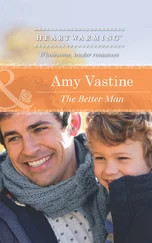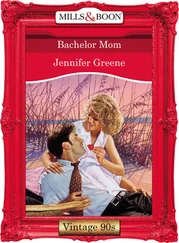Silver knew she had been no kind of aunt to Annie Clyde. She called on the Dodsons only to pick their apples or knock on their kitchen door and offer a jar of the chartered moonshine she made as medicine before winter set in. Most of the time she could put down her head and work through her days. But sometimes the child’s voice drifting up from the farm filled her with regret. She wanted to offer the Dodsons more than moonshine. She thought of asking forgiveness for her absence but didn’t trust herself to say the words right. She spoke to Annie Clyde no more than a few times a year. Sometimes Annie Clyde came up the mountain out of obligation, knowing if Silver stood on a rickety chair to string peppers and the legs gave out she could strike her head on the hearthstone. She could catch a fever and not recover, or break her leg out hunting and lie unfound until the crows picked her bones clean and the possums dragged them off. But all of those Silver loved most had left her alone in the end. Annie Clyde would be no different. Silver would watch her niece ride off down the road. When the truck was out of sight she’d go back through the hayfield and past the apple tree still laden with fruit, up the mountain moving over the stones and roots and ridges of a path her feet could have followed in the dead of night, back to the shack her grandfather built that she had always lived in. She would sit in front of her cold fireplace while down below the lake crept over the Walker farm until it disappeared.
As Silver pondered these things, Gracie came to kneel beside her in the garden dirt. While Gracie played in the loam, flies buzzing around them, Silver remembered the one time she had held the child. She’d seen Annie Clyde behind the house hanging sheets on the first warm day of spring, the farm smelling of turned earth and mown hay, on her way down the track to the road. Annie Clyde had waved Silver over. Gracie was crying in a basket at Annie Clyde’s feet and she asked Silver with pins in her mouth to take the baby for a minute. Silver was trying to recall what Gracie had felt like in her arms when the child lifted a woolly worm on the bridge of her finger and showed it to Silver. Silver tensed but held out her hand to let the worm pass from Gracie’s flesh to her own. They looked at each other as Annie Clyde looked down on their heads. Now Silver wanted that moment to be the last one she spent with her kin. She didn’t know if she could face the loss ahead of her even without seeing it happen before her eyes. She didn’t want to remember them riding off in James Dodson’s Model A Ford, its bed piled high with chattel. Their going no different than any of those other departures she had witnessed from her perch on the ridge.
Kneeling there with Gracie in the garden loam last week, Silver had agreed to take the dog. She couldn’t refuse. But even as they walked away from her, Annie Clyde leading Gracie by the hand and their coonhound loping after them, she didn’t want him. Not for any length of time. The only dogs she’d known were those her grandfather used to keep to guard his moonshine still. The last had been the meanest, a shepherd bitch that bit Silver if she got too close. She’d left a tin feed pan and some mildewed bedding up at the still for ages, in the shed where the bitch was put when she went into heat. Silver hadn’t had the heart to throw them out because they reminded her of her grandfather’s affection for dogs. She had none herself, but she owed her niece something. She felt bound to do the favor Annie Clyde had asked of her, as much as she dreaded it. If Silver could write she might have slipped off with the dog in the night and left a note under a rock on the stoop. She wasn’t supposed to take him until tomorrow. But if she did it now, she wouldn’t have to say good-bye to her people. She wouldn’t have to watch them leaving without her.
Silver’s mind had been burdened this way since she woke at dawn. She took a long time lighting a fire and boiling her oats. At last she decided to go down the mountain and figure out what to do about her niece’s dog later. She had other business to attend to in the valley. She’d been meaning for weeks to gather the last of the trumpet weed growing on the west end of the Hankinses’ pasture before it was drowned. She used the long, hollow stems like straws for reaching into the charred oaken barrels she’d buried underground at the beginning of spring. She would draw out the aged whiskey deep inside and swirl it on her tongue. Then she would spit a mouthful onto the mink-scratched clay of the bank to keep from swallowing it. Whiskey was made for selling and not drinking. That’s where her grandfather Plummerman Ledford had gone wrong. He drank about as much moonshine as he ran off until it killed him. When he died Silver watched as her grandmother Mildred placed coins on his eyes and washed his face, pitted and scarred under his whiskers. Then Silver went to the still and plucked a pink clover for his breast pocket. There was no funeral but she had said her own prayers. Before Plum died, he’d showed Silver everywhere trumpet weed flourished. In past seasons she’d hurried to beat the browsing deer and not the coming lake to her straws. These days most of the weed was eaten off, but when she was a girl the meadows of Yuneetah had been thick with it in late summer on into fall, the drooping lances of its leaves and the pale lavender umbels of its flowers rising ten feet over the goldenrod and thistles along the fencerows. Back then she and Plum had been in no danger of running out.
Silver’s grandfather had taught her everything about bootlegging, starting with how moonshine got its name, made at night so the law wouldn’t see the smoke. She had liked being with him up at the still, set into a stream bank high on the mountain since before she was born. The round metal still pot packed in glistening mud beneath the barrel cap. The stack of the furnace, a fifty-five-gallon drum cut in half, jutting out full of kindling. When the still was running flames wrapped around the pot and shot out the flue at the back, vapors collecting in the barrel cap then moving down into the thumper keg and the condenser. Silver would wash out jars in the trickling stream or whatever her grandfather let her help with. He’d taught her to make whiskey without store-bought yeast or sugar or grain, using corn from their garden and home-sprouted malt. They put half a bushel of meal in each barrel, the other half to be heated for mush in the still pot, and left it a couple of days before coming back to stir it with a stick. Then they added a gallon of ground corn malt and one of meal with a cap of rye sprinkled on top to keep the mash warm. A week or so later when the cap fell off and the top was clear, the whiskey was ready to run off. It was only in the years since Plum died that Silver had taken to chartering moonshine, experimenting with the brew she’d been taught to make. Sometimes she mixed in ginger and orange peel for taste. Sometimes herbs and roots to make the medicine she gave to her niece for Gracie, consulting with Beulah Kesterson on what was wisest to use. She’d found that tulip tree bark worked best for fever. She had sold some of her medicine to Beulah before the old woman gave up peddling, but she made it more for pleasure than for anything else. It was the work she needed, the ritual of following the stream upward each morning until the air turned cooler and purer, to where the still was set in the bank beneath a stand of red buckeye trees.
It wasn’t long past ten o’clock this morning when Silver had strapped on the cotton sack she used for picking and climbed down the winding trail that came out at the foot of the mountain behind the Walker farm. Though she had put a rope in her sack for the dog just in case, she’d kept her face turned away as she went through the hayfield, past the house and on down the track. At the end of the track she had crossed the road and ducked under the fence into the Hankins pasture. She’d gone downhill to where the reservoir was visible, fingers of water pointing farther landward, watching her feet. The cattle were gone but the dried pucks of their manure had come back to life. Soaking up the rain they looked fresh again, sprouting frail clusters of nodding toadstools. She’d stopped when she reached where the lake spilled over, wavering with strands of foxtail and crabgrass. She was surprised at the foothold the reservoir had gained within a few months, how much it had overtaken. Most of the trees and barn sides the power company had slashed with paint to mark how far the water would come had already been wetted. Gulls and herons had already begun to nest. After another night of rain, some of the roads would surely be washed out. Like the rest of the town, Silver was used to the floods and their damage. It was the lake’s stealthiness that bothered her. She had felt it behind her as she sawed at the hollow stems with her corn knife until her arm grew tired, gathering as much this one last time as she could carry home.
Читать дальше
